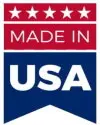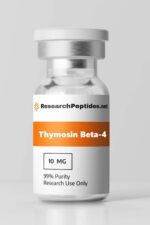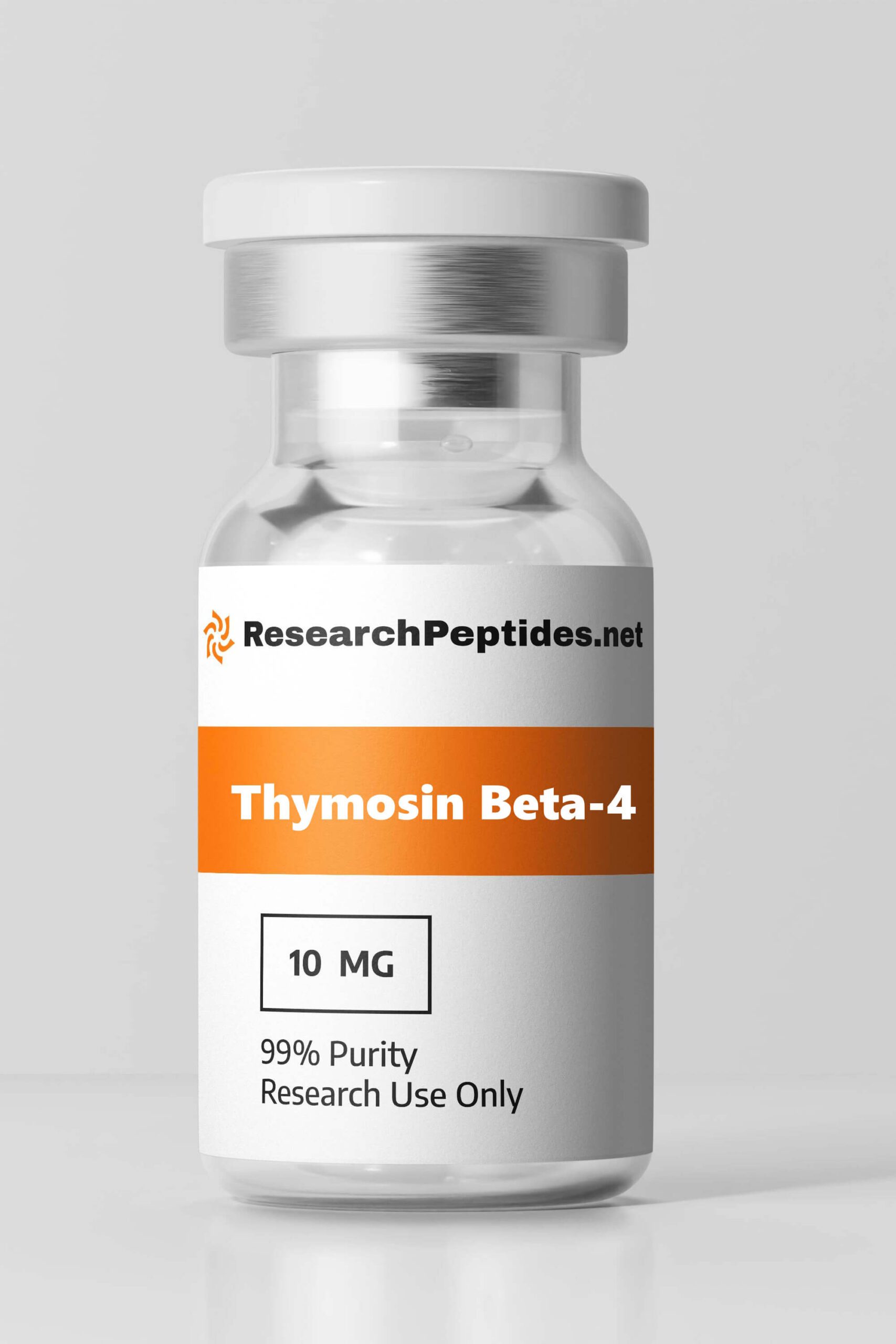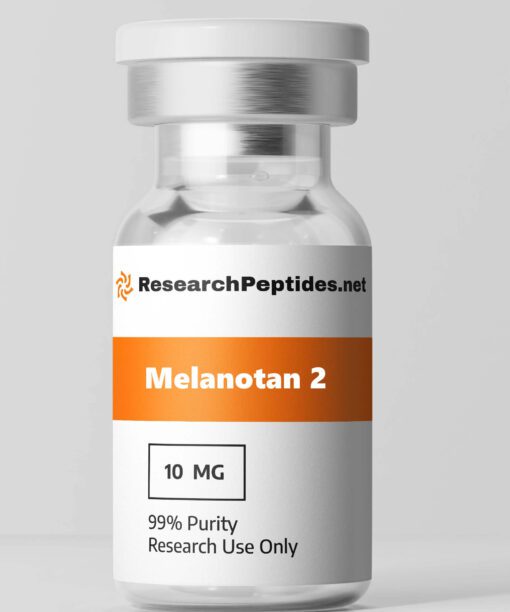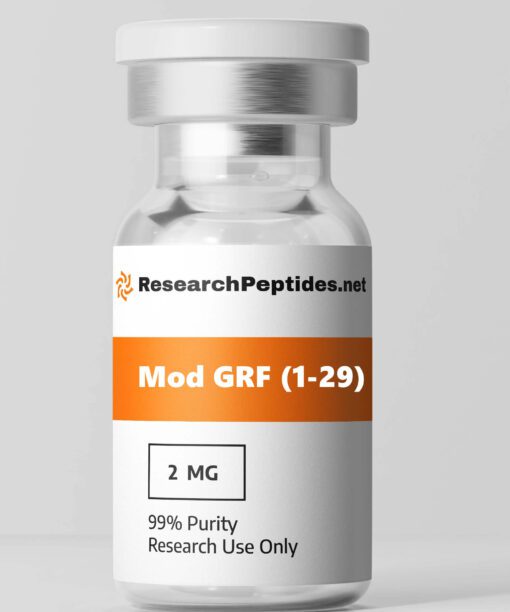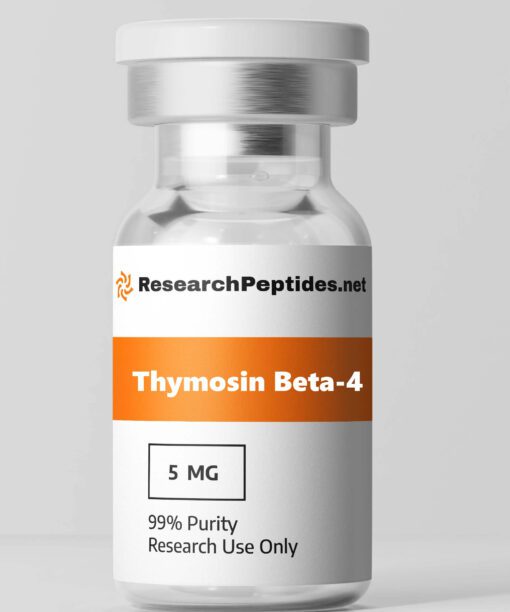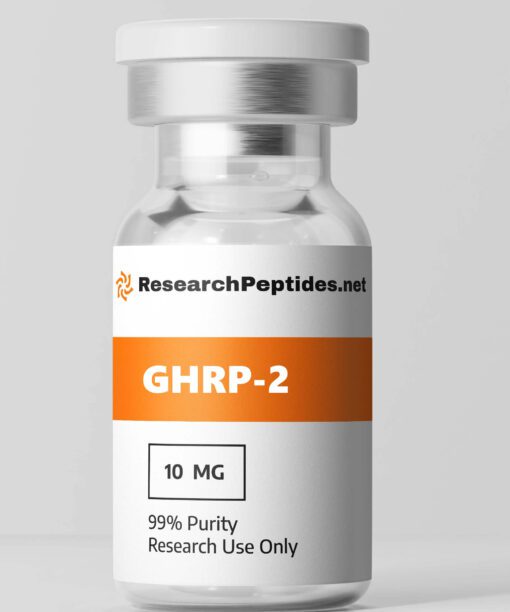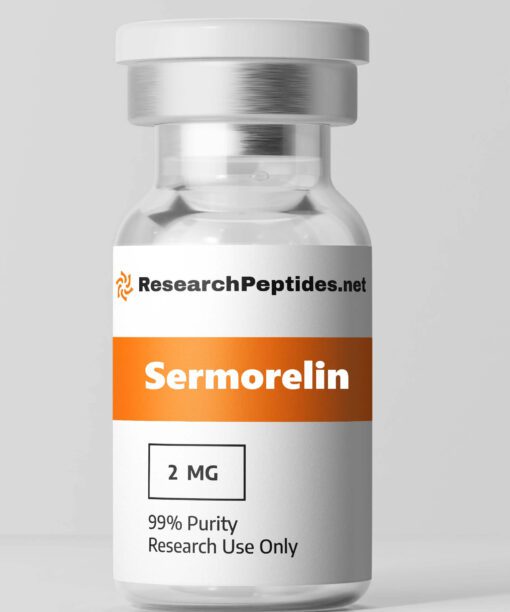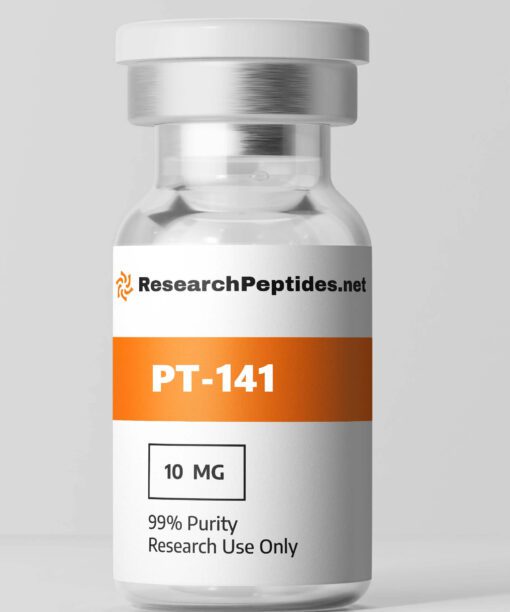Unlocking the Potential of Thymosin Beta-4: Groundbreaking Research Reveals Promising Therapeutic Applications
Introducing Thymosin Beta-4: A Revolutionary Research Product
Studies have shown that Thymosin Beta-4 is a groundbreaking research product with immense potential. This remarkable peptide has been extensively studied, revealing its remarkable regenerative properties and its ability to accelerate tissue repair. With its proven effectiveness and promising results, Thymosin Beta-4 emerges as a game-changer in the field of regenerative medicine.
1. What is Thymosin Beta-4?
Thymosin Beta-4 is a peptide hormone that plays a crucial role in various biological processes. It is naturally produced in the thymus gland, which is located in the upper chest area and is responsible for the development of T-cells, a type of white blood cell involved in immune response. Thymosin Beta-4 has been extensively studied for its potential therapeutic applications due to its ability to promote tissue repair, wound healing, and regeneration.
This peptide hormone consists of 43 amino acids and has a molecular weight of approximately 4.9 kDa. It acts as an actin-sequestering protein, meaning it binds to actin filaments within cells and regulates their dynamics. Actin is a protein essential for cellular movement and structural integrity, making Thymosin Beta-4 critical for maintaining proper cellular function.
Research has shown that Thymosin Beta-4 also possesses anti-inflammatory properties and can modulate the immune response by promoting the production of anti-inflammatory cytokines. Additionally, it has been found to stimulate angiogenesis, the formation of new blood vessels, which is crucial for tissue repair and wound healing.
2. How Does Thymosin Beta-4 Work?
The mechanism of action of Thymosin Beta-4 involves its interaction with various cellular pathways. One key aspect of its function is its ability to bind to G-actin, preventing it from polymerizing into F-actin. This sequestration of G-actin helps regulate actin dynamics within cells, influencing processes such as cell migration, proliferation, and differentiation.
Thymosin Beta-4 also activates specific signaling pathways, including the Akt/mTOR pathway, which plays a crucial role in cell growth and survival. Activation of this pathway promotes protein synthesis and enhances cellular regeneration processes. Additionally, Thymosin Beta-4 can stimulate the release of growth factors such as vascular endothelial growth factor (VEGF) and fibroblast growth factor (FGF), which are involved in tissue repair and angiogenesis.
Furthermore, Thymosin Beta-4 has been shown to modulate the immune response by promoting the production of anti-inflammatory cytokines, such as interleukin-10 (IL-10). This anti-inflammatory effect helps reduce inflammation and promote tissue healing.
3. Thymosin Beta-4 Benefits
The potential benefits of Thymosin Beta-4 have been demonstrated in various non-human research studies. Some of the key benefits include:
- Promotes tissue repair: Thymosin Beta-4 has been shown to enhance tissue repair processes by stimulating the migration and proliferation of cells involved in wound healing.
- Accelerates wound healing: Studies have found that Thymosin Beta-4 can significantly improve wound healing by promoting angiogenesis and collagen deposition.
- Enhances muscle regeneration: Research suggests that Thymosin Beta-4 may play a role in muscle regeneration by promoting satellite cell activation and myoblast differentiation.
- Reduces inflammation: The anti-inflammatory properties of Thymosin Beta-4 contribute to its ability to alleviate inflammation associated with tissue injury or disease.
4. Thymosin Beta-4 Side Effects
In animal research studies, no significant side effects have been reported with the use of Thymosin Beta-4. However, it is important to note that the safety profile of Thymosin Beta-4 in humans is not fully understood, as clinical trials are limited.
As with any peptide or hormone, it is essential to use Thymosin Beta-4 responsibly and under the guidance of a qualified researcher. It is advisable to adhere to recommended dosages and administration protocols to minimize the risk of potential side effects.
5. Advantages of Thymosin Beta-4
Thymosin Beta-4 offers several advantages compared to other peptides:
- Wide range of applications: Thymosin Beta-4 has shown potential in various fields of research, including tissue engineering, regenerative medicine, and wound healing.
- Diverse biological effects: This peptide hormone influences multiple cellular pathways involved in tissue repair, wound healing, and inflammation modulation.
- Minimal side effects: In animal studies, Thymosin Beta-4 has demonstrated a favorable safety profile with no significant adverse reactions reported.
- Natural production: Thymosin Beta-4 is naturally produced in the body, making it well-tolerated and potentially compatible with physiological processes.
6. Thymosin Beta-4 Research Topics
Thymosin Beta-4 has been studied in various animal research models across different areas. Some key research topics include:
- Tissue repair and regeneration: Investigating the role of Thymosin Beta-4 in promoting tissue repair and regeneration processes in different organs and tissues.
- Wound healing: Examining the effects of Thymosin Beta-4 on wound healing, including its impact on angiogenesis, collagen deposition, and scar formation.
- Muscle regeneration: Exploring the potential of Thymosin Beta-4 in enhancing muscle regeneration and recovery following injury or degenerative conditions.
- Inflammation modulation: Investigating the anti-inflammatory properties of Thymosin Beta-4 and its potential application in reducing inflammation associated with various diseases.
7. Future Research Directions for Thymosin Beta-4
While significant progress has been made in understanding the potential benefits of Thymosin Beta-4, there are still areas that require further exploration:
- Mechanisms of action: Further investigation is needed to elucidate the precise mechanisms by which Thymosin Beta-4 exerts its effects on cellular pathways involved in tissue repair and regeneration.
- Clinical trials: Conducting well-designed clinical trials to evaluate the safety and efficacy of Thymosin Beta-4 in humans is crucial for its potential therapeutic applications.
- Optimal dosing and administration: Determining the optimal dosing regimens and routes of administration for different conditions will help maximize the potential benefits of Thymosin Beta-4.
- Combination therapies: Exploring the synergistic effects of combining Thymosin Beta-4 with other therapeutic agents may enhance its efficacy in promoting tissue repair and regeneration.
8. Thymosin Beta-4 Before and After in Research
In animal experiments using Thymosin Beta-4, researchers have observed notable improvements before and after treatment. Some examples include:
- Accelerated wound healing: Animals treated with Thymosin Beta-4 have shown faster wound closure rates, reduced inflammation, and improved tissue regeneration compared to control groups.
- Enhanced muscle recovery: Animal models of muscle injury or degenerative conditions have demonstrated improved muscle regeneration and functional recovery following Thymosin Beta-4 administration.
- Promoted tissue repair: Studies investigating the effects of Thymosin Beta-4 on various organs, such as the heart or liver, have reported enhanced tissue repair processes and improved organ function.
9. Thymosin Beta-4 Cycle for Research
The recommended dosing cycle for conducting non-human research with Thymosin Beta-4 can vary depending on the specific research objectives and animal model used. However, a commonly suggested dosing regimen is as follows:
- Dosing frequency: Administer Thymosin Beta-4 once daily or every other day.
- Dosing duration: Conduct the research study for a period of 2 to 6 weeks.
- Dose amount: Use a dosage range of 0.5 to 2 mg/kg body weight per administration.
It is important to note that these recommendations are general guidelines and may need to be adjusted based on the specific requirements of each research study. Consulting with a knowledgeable researcher or veterinarian is advisable to determine the optimal dosing cycle for individual experiments.
10. Best Thymosin Beta-4 Results in Research
Several studies have reported promising outcomes using Thymosin Beta-4 in animal models. Some notable findings include:
- Improved cardiac function: Research has shown that Thymosin Beta-4 administration can enhance cardiac function and improve outcomes following myocardial infarction or heart failure.
- Enhanced bone healing: Animal studies have demonstrated accelerated bone healing and increased bone density after Thymosin Beta-4 treatment, suggesting its potential application in orthopedic research.
- Neuroprotective effects: Thymosin Beta-4 has been found to exert neuroprotective effects in animal models of neurological disorders, such as stroke or traumatic brain injury.
11. Where to Buy Thymosin Beta-4?
To purchase Thymosin Beta-4 for research purposes, it is recommended to obtain it from a reputable source such as ResearchPeptides.net. ResearchPeptides is a trusted supplier of high-quality peptides that are manufactured using rigorous quality control standards.
When purchasing peptides for research, it is important to ensure that the supplier adheres to ethical guidelines and regulations. This includes obtaining proper approvals and certifications for the use of peptides in non-human research and complying with relevant laws and regulations governing peptide distribution.
12. Thymosin Beta-4 for Sale
Thymosin Beta-4 is available for sale from Research Peptides, a leading supplier of peptides for research purposes. ResearchPeptides.net offers Thymosin Beta-4 in various quantities to accommodate different research needs.
| Product | Pack Size | Price |
|---|
| Thymosin Beta-4 | 2 mg | $42.00 |
| Thymosin Beta-4 | 5 mg | $85.00 |
It is important to note that Thymosin Beta-4 is intended for research purposes only and should not be used for human consumption.
Overall, the research on Thymosin Beta-4 has demonstrated its potential as a promising therapeutic agent. Studies have consistently shown its ability to promote tissue repair and regeneration, enhance wound healing, and reduce inflammation. With its proven efficacy and minimal side effects, Thymosin Beta-4 holds great promise for future medical applications.
Frequently Asked Questions About Thymosin Beta-4 Peptides April 2024
Does thymosin build muscle?
Thymosin beta has similar effects to human and animal growth hormones, but it should not be mistaken for steroids as it has distinct differences. TB-500 has the ability to enhance strength and muscle mass.
Is thymosin beta 4 banned?
Thymosin beta-4 is categorized as a substance that enhances performance and is prohibited in sports by the World Anti-Doping Agency because it helps with the recovery of soft tissues and allows for higher training intensities.
What is in thymosin beta 4?
Tβ4 is a protein that consists of 43 amino acids and has a molecular weight of 4.9 kDa. It was first discovered in bovine thymus and has been extensively studied (Low et al 1981; Goodall et al 1983; Yu et al 1994). Tβ4 plays a crucial role in cells as it is the primary peptide responsible for binding and disassembling F-actin, which is a type of cellular protein associated with cell movement and structure.
What does thymosin beta 4 do to the body?
Thymosin β(4) attaches to actin and enhances the movement of cells, including the movement, migration, and specialization of stem/progenitor cells. This process helps in the formation of new blood vessels and tissue regeneration. Thymosin β(4) also reduces the presence of myofibroblasts in wounds, leading to reduced scar formation and fibrosis.
Is thymosin beta 4 safe?
Safety precautions and recommendations • Thymosin beta 4 peptide is considered safe when taken at recommended doses. Its safety has not been established in pediatric patients. Like with any injection, there may be redness and discomfort at the injection site.
What effect does thymosin have on the body?
Thymosin is a hormone that is produced by the thymus and plays a crucial role in stimulating the production of T cells, which are essential for the immune system. Additionally, Thymosin aids in the formation of plasma cells from B cells, which then produce antibodies.
Discover the Power of Peptides: Your Ultimate Resource 2024
Our Peptides Outlet offers a comprehensive selection of peptide forms, including protein polymers, peptide combinations, IGF-1 Proteins, Melanotan molecules, and cosmetic peptide compounds. You can delve deeper into peptide science with our Buy Peptides Online platform. We also provide a range of Lab Equipment for your research needs. Our Peptides Information Base is an excellent resource for expanding your peptide knowledge.
Author Info and References
Author info: The information provided in this article was taken from studies carried out by recognized researchers, including H. Kaur and B. Mutus, D. Philp, S. St-Surin, H.-J. Cha, H.-S. Moon, H. K. Kleinmice, and M. Elkin, Kyoung Soo Kim and Hyung-In Yang.
References
- Kim, J., Lee, C., Han, J., Jeong, H.-R., Wang, S., Choi, Y., & Jung, Y. (2023). Targeted Deletion of Thymosin Beta 4 in Hepatic Stellate Cells Ameliorates Liver Fibrosis in a Transgenic Mouse Model. Cells, 12(12). Link to article | PDF
- Choi, J., Cho, Y., Choi, H., Lee, S., Han, H.-J., Lee, J., & Kwon, J. (2023). Thymosin Beta 4 Inhibits LPS and ATP-Induced Hepatic Stellate Cells via the Regulation of Multiple Signaling Pathways. International Journal of Molecular Sciences, 24(4). Link to article | PDF
- Yu, R., Gao, D., Bao, J., Sun, R.-S., Cui, M., Mao, Y., Li, K., Hu, E., Zhai, Y., Liu, Y., Gao, Y., Xiao, T., Zhou, H., Yang, C., & Xu, J. (2023). Exogenous Thymosin Beta 4 Suppresses IPF-Lung Cancer in Mice: Possibly Associated with Its Inhibitory Effect on the JAK2/STAT3 Signaling Pathway. International Journal of Molecular Sciences, 24(4). Link to article | PDF
- Lee, J.-W., Thuỷ, P. X., Koo, J. H., & Moon, E. (2022). Nuclear factor (erythroid-derived 2)-like 2 counter-regulates thymosin beta-4 expression and primary cilium formation for HeLa cervical cancer cell survival. Scientific Reports. Link to article | PDF
- Ahmed, A., Ibrahim, W., Nabil, Z., Mansour, K., Mansour, A. M. F., & Elghandour, A. M. (2022). Role of Thymosin Beta 4 in the diagnosis of Nonalcoholic Fatty Liver and its relation to Metabolic Syndrome in Egyptian patients. Egyptian Journal of Immunology. Link to article | PDF
- Su, L., Kong, X., Loo, S., Gao, Y., Liu, B.-L., Su, X., Dalan, R., Ma, J., & Ye, L. (2022). Thymosin beta-4 improves endothelial function and reparative potency of diabetic endothelial cells differentiated from patient induced pluripotent stem cells. Stem Cell Research & Therapy. Link to article | PDF
- Wang, Y., Carion, T. W., Ebrahim, A., Sosne, G., & Berger, E. A. (2021). Adjunctive Thymosin Beta-4 Treatment Influences PMN Effector Cell Function during Pseudomonas aeruginosa-Induced Corneal Infection. Cells. Link to article | PDF
Kaur, Harmicepreet, and Bulent Mutus. “Platelet Function and Thymosin Β4.” Biological Chemistry 393, no. 7 (July 1, 2012): 595–598. doi:10.1515/hsz-2012-0131.
PHILP, D., S. ST-SURIN, H.-J. CHA, H.-S. MOON, H. K. KLEINMAN, and M. ELKIN. “Thymosin Beta 4 Induces Hair Growth via Stem Cell Migration and Differentiation.” Annals of the New York Academy of Sciences 1112, no. 1 (May 10, 2007): 95–103. doi:10.1196/annals.1415.009.
Kim, Kyoung Soo, and Hyung-In Yang. “Thymosin Β4 in Rheumatoid Arthritis: Friend or Foe.” Biomedical Reports 7, no. 3 (July 25, 2017): 205–208. doi:10.3892/br.2017.952.
Share The Thymosin Beta-4 Product Page
Thymosin Beta 4 Research Peptides Scientists
Share Thymosin Beta 4 Product Page
Product Usage: THIS PRODUCT IS INTENDED AS A RESEARCH CHEMICAL ONLY. This designation allows the use of research chemicals strictly for in vitro testing and laboratory experimentation only. All product information available on this website is for educational purposes only. This product has not been approved by the FDA for Human Use. Bodily introduction of any kind into humans or animals is strictly forbidden by law. This product should only be handled by licensed, qualified professionals. This product is not a drug, food, or cosmetic and may not be misbranded, misused or mislabeled as a drug, food or cosmetic.
Estimated Reading Time: 13 min read
